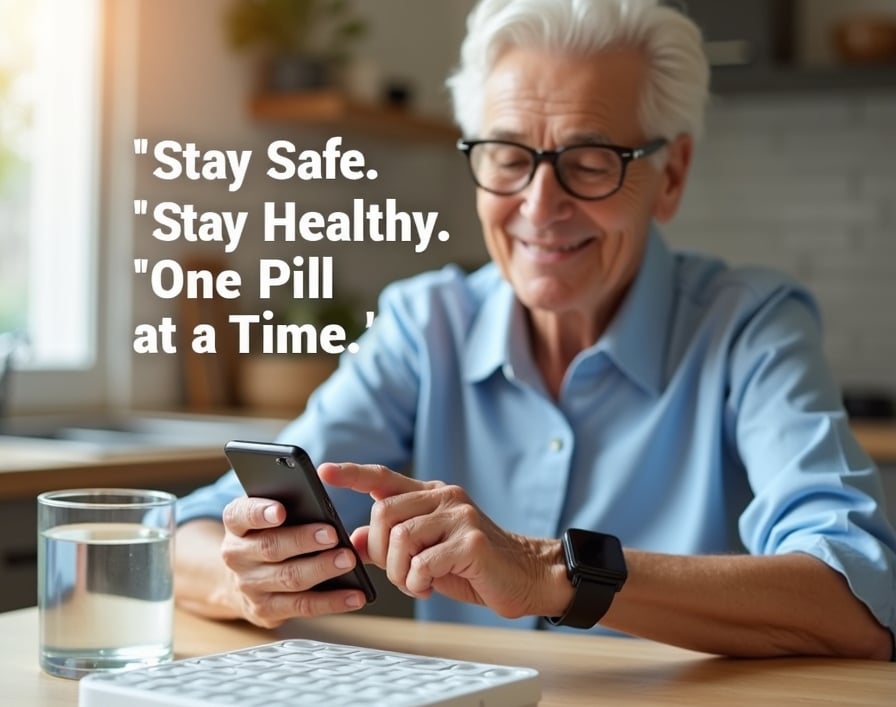Medication Mismanagement in Seniors: Causes, Risks & Smart Solutions
Medication mismanagement is a common risk for seniors — but it can be prevented. Learn practical solutions like pill organizers, alarms, pharmacy blister packs, and telemedicine reminders to help older adults stay safe, independent, and healthy.
Javed Niamat
10/20/20253 min read


Medication Mismanagement in Seniors: Causes, Risks & Smart Solutions
Medication plays a crucial role in senior health, helping manage chronic conditions such as heart disease, diabetes, arthritis, or high blood pressure. But for many older adults, keeping track of multiple prescriptions can become overwhelming. Missed doses, double-dosing, or taking the wrong medication at the wrong time can lead to serious health risks — sometimes even hospitalization.
According to the National Institute on Aging (NIA), nearly 55% of seniors take more than five medications daily, and medication errors are among the most common causes of preventable health complications in older adults.
This is where smart medication management becomes essential — to keep seniors safe, healthy, and independent.
Why Medication Mismanagement Happens
Medication mismanagement doesn’t always happen intentionally. In many cases, it’s due to a combination of age-related changes and practical challenges:
Memory Loss or Cognitive Decline
Forgetting doses or mixing up medications is common among older adults facing memory challenges.Vision Problems
Difficulty reading small print on labels can lead to taking the wrong medication.Complex Medication Schedules
Many seniors must take several medications at different times of the day — making it hard to follow consistently.Lack of Support
Living alone or without regular caregiver assistance increases the risk of skipped or incorrect doses.Side Effects or Fear of Medication
Some seniors may stop taking their meds because of side effects or misunderstanding their importance.
Risks of Medication Errors
Medication errors can have serious consequences, especially for older adults whose bodies may react more strongly to even small dosage changes.
Increased hospitalizations due to overdoses or untreated conditions
Worsening of chronic illnesses such as hypertension or diabetes
Drug interactions from mixing incompatible medications
Falls or confusion caused by incorrect dosages
Reduced quality of life due to unstable health
A study published in JAMA Internal Medicine found that nearly 125,000 deaths per year in the U.S. are related to medication non-adherence or mismanagement.
Source: National Institute on Aging
Practical Solutions for Better Medication Management
Thankfully, there are simple, proven strategies to help seniors manage their medications safely and confidently.
1. Pill Organizers (Weekly or Monthly)
Using a clearly labeled pill organizer can make a huge difference. It separates medications by day and time, making it easy to remember whether a dose has been taken.
Ideal for seniors with multiple prescriptions
Reduces the risk of double-dosing
Available in simple or digital versions
Tip: Choose organizers with large print and easy-to-open compartments.
2. Medication Alarms & Reminders
Technology can help seniors stay on track. Setting alarms on smartphones, smart speakers, or special medication reminder devices ensures no dose is missed.
Easy to set up recurring reminders
Useful for seniors living independently
Can be paired with caregiver notifications
Some popular reminder apps include:
Medisafe (free app with caregiver sync)
Pill Reminder
CareClinic
3. Pharmacy Blister Packs
Many pharmacies offer pre-packaged medication blister packs, where pills are organized by day and time. This is one of the easiest ways to minimize confusion.
Helps avoid sorting pills manually
Ensures correct dosage at the right time
Can be delivered directly to the senior’s home
Ask your local pharmacist if blister packaging is available.
4. Telemedicine & Virtual Check-ins
With the rise of telemedicine, seniors can now consult doctors or pharmacists online for medication reviews, dosage adjustments, or side effect discussions without leaving home.
Convenient for seniors with mobility issues
Encourages regular check-ins
Helps identify potential drug interactions early
Explore Telehealth Resources at Health.gov
The Role of Caregivers & Family Support
Family members and caregivers play a crucial role in preventing medication errors. Simple habits can make a lasting impact:
Reviewing medications together once a week
Keeping an updated medication list with dosages and schedules
Communicating regularly with healthcare providers
Using shared calendar apps to coordinate reminders
Example: A daughter who set daily smart speaker reminders for her 82-year-old mother reduced missed doses from weekly to almost zero in three months.
Real-Life Story: Mrs. Elaine’s Journey
Elaine, a 76-year-old widow with diabetes and hypertension, was taking eight different medications daily. She often forgot her evening pills, which led to frequent dizzy spells and one serious fall.
Her daughter introduced a weekly pill organizer with bright labels and set up phone alarms for each dose. Within weeks, Elaine regained confidence in managing her health. Her blood pressure stabilized, and her energy improved.
“I feel more in control of my life again,” Elaine shared. “Something as small as a pill box changed everything.”
Preventing Medication Mismanagement Before It Happens
Prevention is always better than emergency care. Seniors and their families should work together to create a simple, structured system:
Keep medications in one safe, organized place
Review all prescriptions with a doctor or pharmacist twice a year
Ask about combining medications to reduce complexity
Use technology (alarms, apps, telehealth) to stay consistent
Final Thoughts
Medication mismanagement is a serious but preventable issue among seniors. By combining organization tools, modern technology, and family support, older adults can maintain better health, reduce hospital visits, and live more independently.
If you or someone you love struggles with medication management, consider speaking with a pharmacist or exploring telemedicine support.
Healthy habits can save lives — one pill at a time.